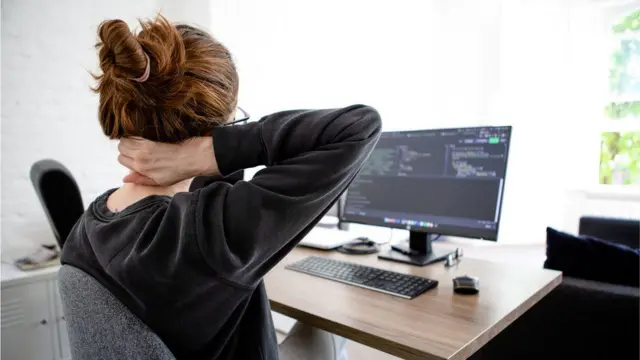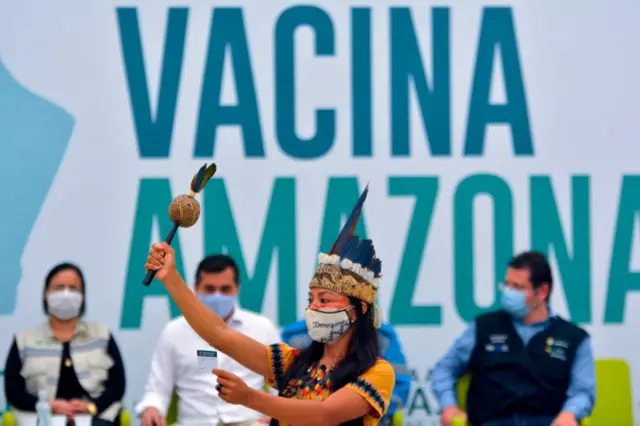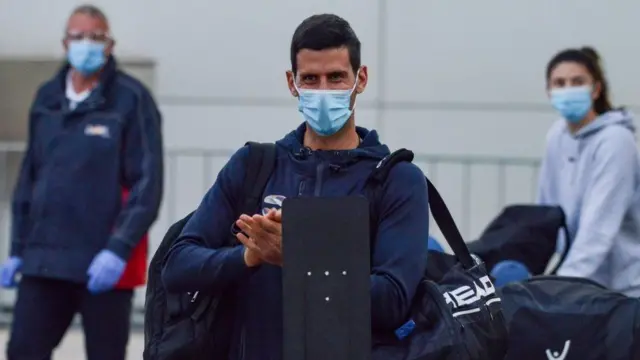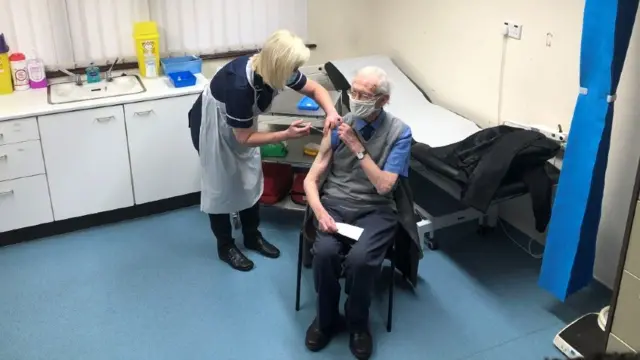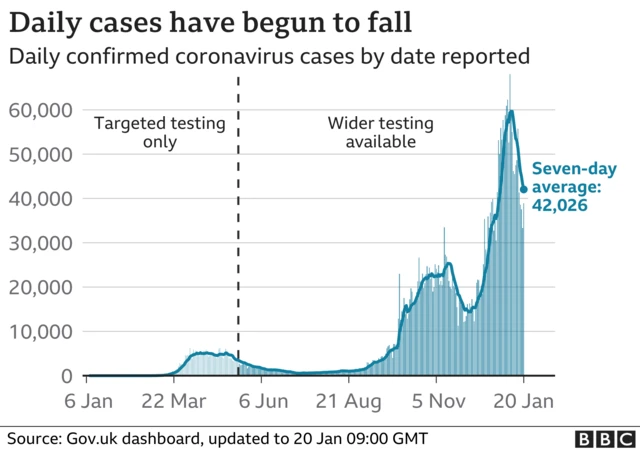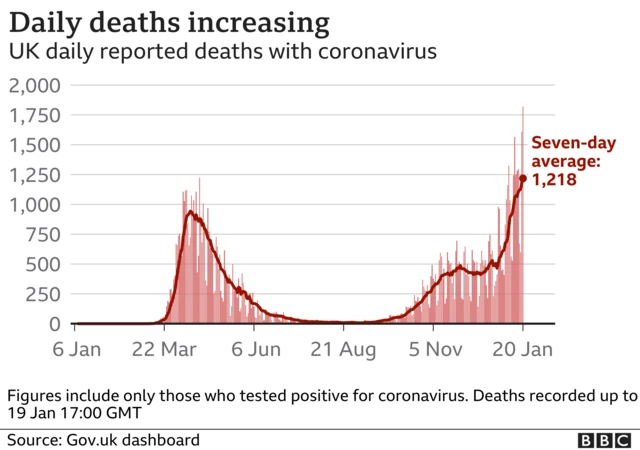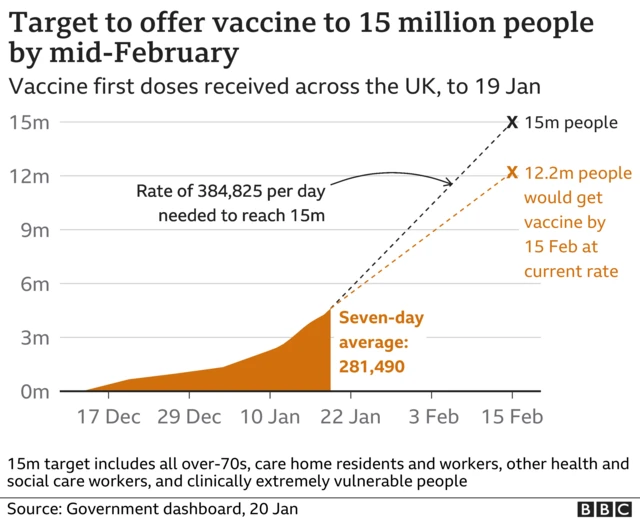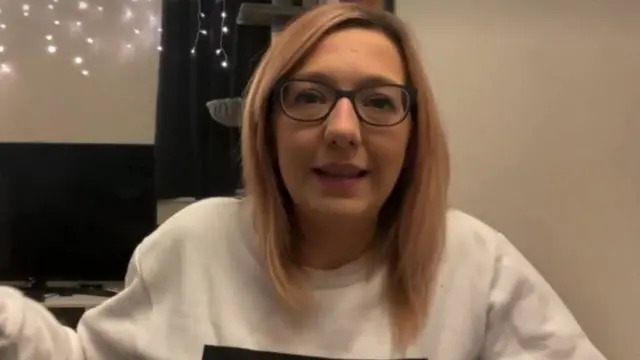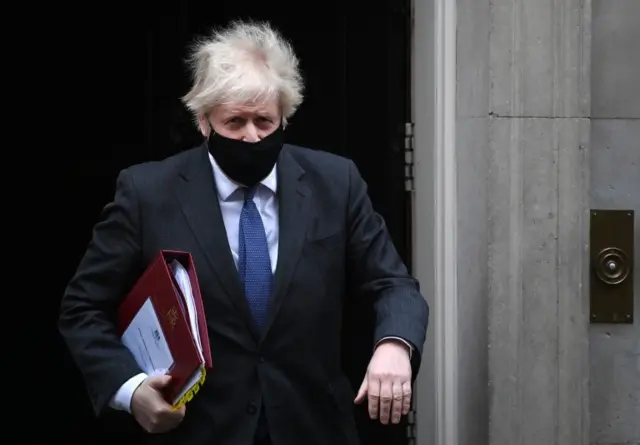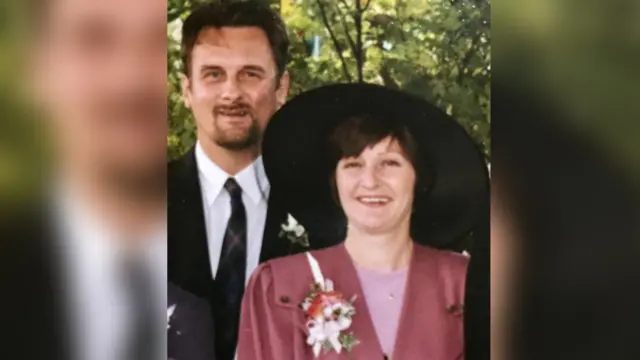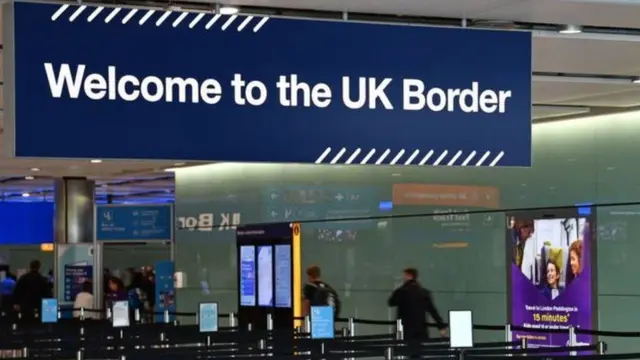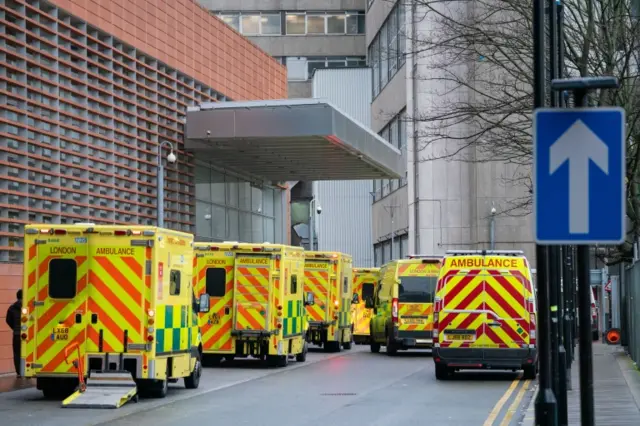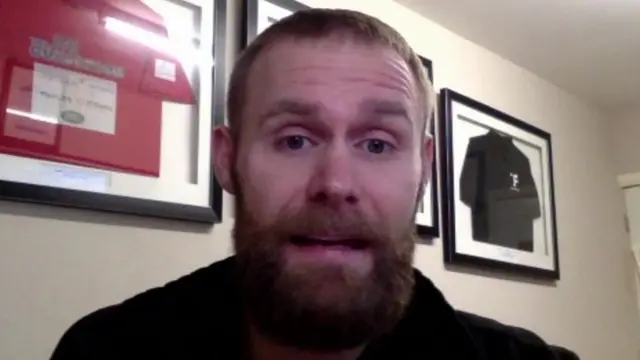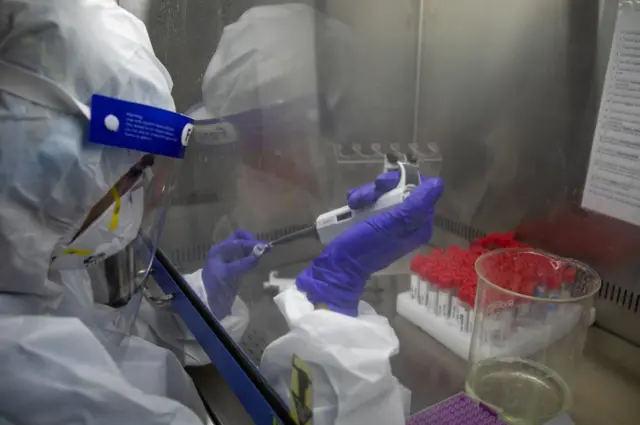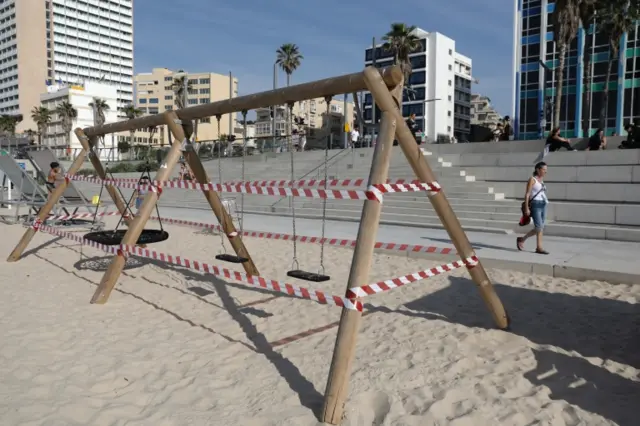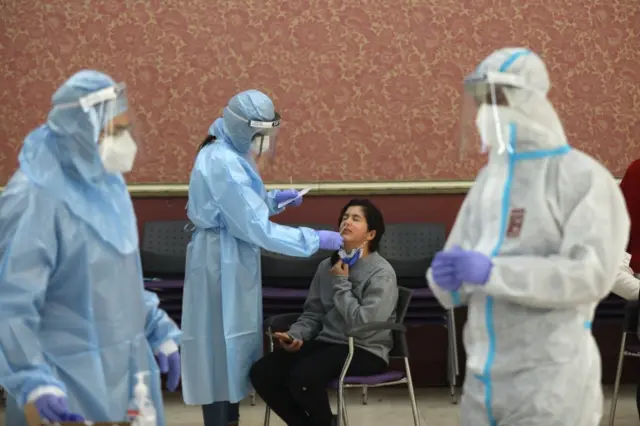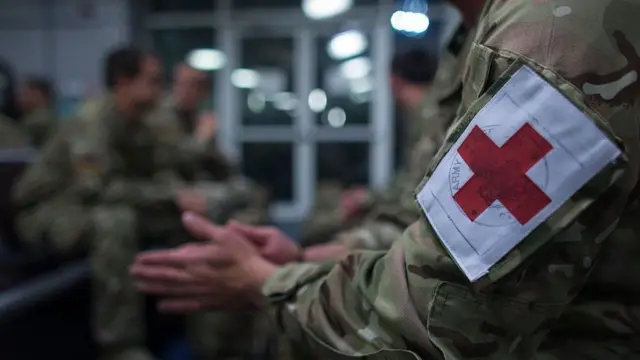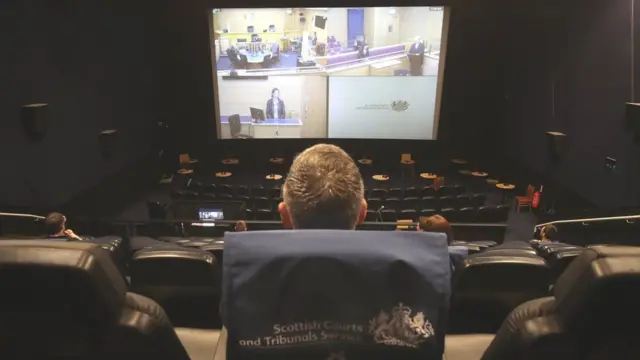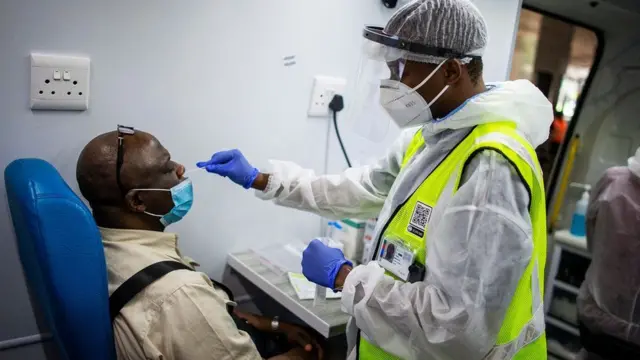What's been happening today?published at 18:53 GMT 20 January 2021
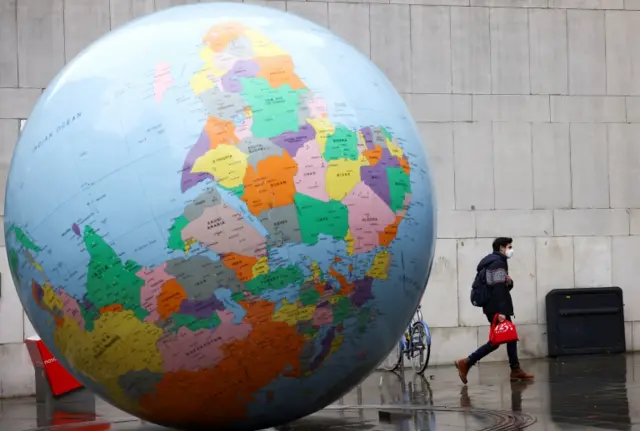 Image source, Reuters
Image source, ReutersThe World Turned Upside Down by Mark Wallinger in central London
Thanks for joining us today for our coronavirus coverage.
If you need a recap, these have been some of the key headlines today:
- UK Prime Minister Boris Johnson has warned there will be more deaths to come
- It follows the news 1,820 deaths had been reported in the UK in the past 24 hours, surpassing the previous high, yesterday
- A recording emerged of Home Secretary Priti Patel saying she had been in favour of the UK borders closing last March
- Meanwhile, the home secretary says ministers are working to ensure police and other front-line workers are moved up the priority list for the Covid vaccine
- Teachers are set to decide GCSE, AS and A-level grades in Wales after a system replacing end-of-year exams was axed
- The Ministry of Justice could open courts in England and Wales for longer to help clear the backlog of cases built up during the pandemic
- Protesters who broke a coronavirus curfew to continue riots for a fifth night have been warned by Tunisia's prime minister to stop their violence
- Israel has extended its nationwide lockdown until the end of the month, amid a spike in cases
- Chancellor Angela Merkel appealed to EU countries to agree common measures to curb infections, as she extended Germany's lockdown
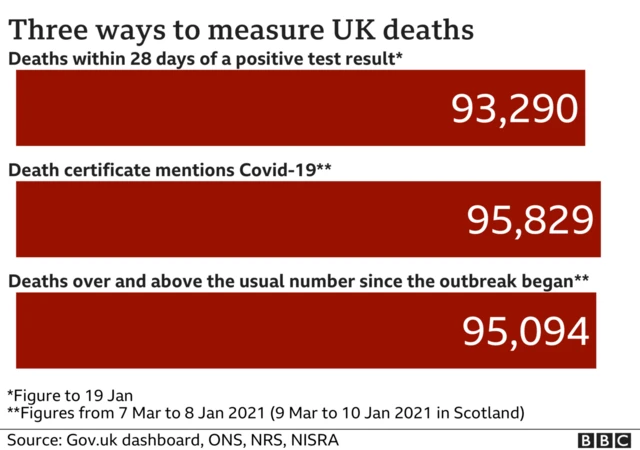
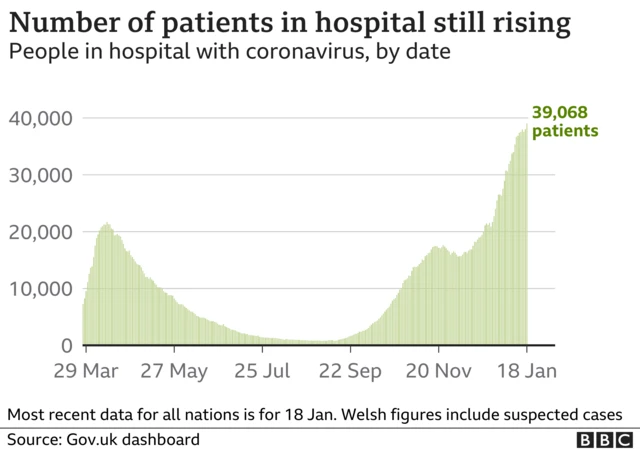
Our updates today were brought to you by Alice Evans, Claire Heald, Doug Faulkner, Georgina Rannard, Jen Meierhans, Lauren Turner, Paul Kirby and Sarah Fowler.
Join us again tomorrow.
